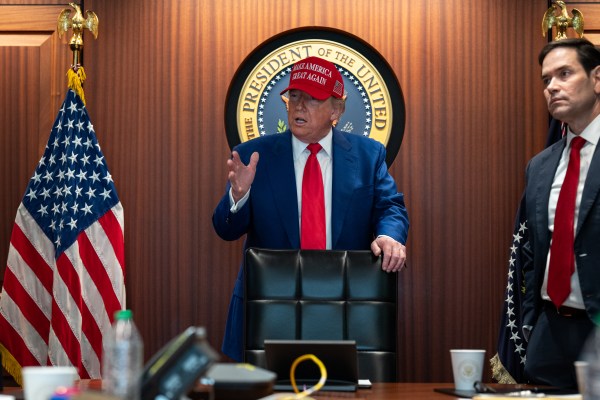Hey,
Because of a poor recovery from surgery, I’ve been miserable for the last week. And while I’m much better now that I’ve had the medically necessary cinder blocks removed from my nose, I’m still a little out of it and catching up on the news.
Only this morning did I see this Wired magazine interview with Pete Buttigieg, and it’s amazeballs.
Here’s how the author, Virginia Heffernan, sets the table.
THE CURIOUS MIND of Pete Buttigieg holds much of its functionality in reserve. Even as he discusses railroads and airlines, down to the pointillist data that is his current stock-in-trade, the US secretary of transportation comes off like a Mensa black card holder who might have a secret Go habit or a three-second Rubik’s Cube solution or a knack for supplying, off the top of his head, the day of the week for a random date in 1404, along with a non-condescending history of the Julian and Gregorian calendars.
Now, as someone who distrusts Go addicts and prefers his histories of calendars as condescending as possible—“You should know that the Julian calendar should really be called the Sosigenian calendar, right? But maybe you’re just one of those people who just defers to imperial propaganda …”—none of this comes across as complimentary as Heffernan intended.
Moreover, I’m a fairly cynical Gen X conservative who has a well-developed philosophical distrust of political enthusiasm, so stuff like this makes me very uncomfortable. I don’t like journalistic fawning. I really don’t like fawning over people in power. If I had to do a vigorous personal inventory of all the reasons I so disliked the Clinton era, a large causal factor would be the way the elite media acted like cheerleaders for that supposedly dynamic duo. As I spelunk further into my own psychological warehouse, the same holds true for my discomfort with the spectacle of Obama’s presidency. And truth be told, the right-wing media’s lionization of Trump vexed me greatly. Sycophantic propagandizing of politicians, particularly presidents, strikes me as a form of idolatry. I may lack Kevin Williamson’s obsession with the topic, but I do endorse his sentiments.
But at least with presidents, I get where it comes from. There’s something in the reptilian parts of our brains that compels many humans to worship presidents as sacred avatars and secular intercessors. But the secretary of transportation? Really?
Saint Pete.
Okay, fine. Pete Buttigieg is smart. But is he really that smart? Is his brain such a glorious intellectual feast that Heffernan thinks it’s fine to skip the eat-your-vegetables part of her job and actually ask about how he’s doing his job? I mean, Buttigieg has not been some transformational, world-historical figure as transportation secretary. Not that I would want such a functionary in a second-tier Cabinet position to be a transformational figure. If people start lighting votive candles to secretaries from the Department of Housing and Urban Development or Department of Health and Human Services, it’s time to head to the bunkers.
Heffernan ignores all of the political and policy nuts and bolts—rail safety, airline safety, the (mis)allocation of resources to white elephant projects—and goes straight to the oracular wisdom she thinks people want to hear from the former mayor of South Bend, Indiana, (the fourth biggest city in the 17th biggest state) and current infrastructure pitchman. “Fortunately,” Heffernan informs us, “he was willing to devote yet another apse in his cathedral mind to making his ideas about three mighty themes—neoliberalism, masculinity, and Christianity—intelligible to me.”
Now, because I don’t actually care very much about Buttigieg’s views on any of these things, I’m not going to dwell on them. Also, the annoying thing about Buttigieg is that he doesn’t actually say anything all that insightful. He just sounds very insightful when he repackages pretty conventional stuff.
But that’s why I do find the cult of Buttigieg interesting. There’s a tendency in upscale, mostly white progressivism to be worshipful of precocious white, male policy nerds. I should be fair. This tendency toward deifying gurus and assuming they have all of the answers ails all political movements. But the sociology is different. For good or ill, the right tends to fall for wisemen in the form of pastors and philosophers who offer intellectual confirmation of familiar homespun truths. Jordan Peterson is not my cup of tea, but he plays a very familiar role.
Meanwhile, going back to the Walter Lippmann crowd, the left has long had a weakness for wonks who tell them there’s a study or data to confirm whatever it is they already want to believe—and do. It’s very common in journalism. The whole fad of “explanatory journalism” was premised on the idea that the absolute truth could be found in the data when liberal writers got to explain what the data said. “Facts,” Paul Krugman likes to assert, “have a liberal bias.”
But in every generation there are politicians who capture the hearts of what today is often called “the laptop class” in the Democratic Party. But it predates all that. Lippmann wanted to de-ideologize politics and put “disinterested” experts in charge of everything. FDR’s Brain Trust had all of those slide rules and calculating machines to find the “right answer” to every thorny political question. They had such mastery over the supply chain and agricultural policy that they had to slaughter 6 million pigs while people were going hungry.
John F. Kennedy appealed to this strain of liberalism. In his 1962 Yale commencement address, Kennedy explained that “political labels and ideological approaches are irrelevant to the solution” of today’s challenges. “Most of the problems … that we now face, are technical problems, are administrative problems.” It was this conviction that led Kennedy to fill his Department of Defense with “whiz kids” who had so much success reducing the war effort in Vietnam to statistical questions. Gary Hart, the leader of the Atari Democrats, was hip to all the new technologies and understood how the outmoded categories of our politics needed to be transcended. Al Gore inherited that mantle for a long time. To be generous to Pete Buttigieg, he tries to keep the McKinsey part of his persona in check while casting himself as someone who’s capable of synthesizing data into wisdom. More on that in a minute.
Church, state, science.
This sociological difference between left and right makes a lot of sense when you think about it. Speaking very, very broadly—so broadly as to be plausibly accused of wanton overgeneralization—the divide in Western civilization since the Enlightenment has been between those who wanted to separate the spheres of church and state and those who wanted to replace the church with a new science that would have authority over the state in the way the church did. Social scientists would be the new doctors of the church, guiding the state toward the redemption of society.
Let me back up. Prior to the Enlightenment, the lines between the secular and sacred authority were blurry. Yes, after the Reformation, state authority and church authority were separated somewhat. But the Protestant kings were also the heads of their churches. And the Catholic kings still derived their legitimacy from the church and deferred to its authority on many things. Moreover, the church was often the seat of learning and science.
The Enlightenment wanted to clean this stuff up. Those on the right wing of liberalism wanted to have clear lanes for different institutions and power centers. This stuff is in the throne’s portfolio, but this other stuff belongs to political authorities, or the family, or to the private sector, or to the people generally. This view explains the emphasis on divided powers, checks and balances, religious liberty, family values, and traditionalism generally. The state is there to do the things the state is justly and lawfully empowered to do, and nothing else.
The motives of the state do not matter. Rulers should not have the “arbitrary power” to do what they want, even if God or science assures them they have all the right answers to our problems.
Those on the left wing of liberalism saw all of these institutions independent of state power as a burden; unnecessary baggage on the state’s rocket ship quest to a perfect society.
Auguste Comte, who coined the term “sociology,” wanted to make scientists and engineers into the new “saints” in his “religion of humanity.” Herbert Croly, who was literally baptized into this religious cult, believed that the state should have free rein—and reign—to force these other spheres of life into a unitary, society-wide campaign of social “improvement.”
The progressive eggheads of the social gospel era still used the language of religion, but they saw the state as the instrument of God’s will, and they were the ones with the special access to God’s will. Richard Ely, the founder of the “Wisconsin School” of progressivism, wrote, “I take this as my thesis: Christianity is primarily concerned with this world, and it is the mission of Christianity to bring to pass here a kingdom of righteousness and to rescue from the evil one and redeem all our social relations.” But there should be no distinction, no specific lanes for church and state, because “God works through the State in carrying out His purposes more universally than through any other institution,” Ely wrote. The state is “religious in its essence” and “a mighty force in furthering God’s kingdom and establishing righteous relations.”
The religious language is no longer fashionable, but the idea that the state must establish “righteous relations” is intact.
I know a lot of this is Goldberg’s Greatest Hits stuff. So I’ll spare you my familiar invocations of the English Garden versus the French and enterprise associations versus civil associations, and just say that I think it’s objectively true that at a very fundamental level, the left sees structural, institutional, and cultural impediments to their desired social arrangements as somehow illegitimate or ignorable. The Electoral College, the Second Amendment, customs about marriage, traditional—or scientific!—notions of gender: all of these can and should be surmounted if it’s for the greater good. Society is a project, and those in charge shouldn’t be shackled by dogmatic or procedural impediments.
Buttigieg alludes to this in his interview. He says that “neoliberalism” was wrong because it didn’t give experts—like him—room to craft more intelligent industrial policies that the market could not. “The lived reality of the younger generations is that they are experiencing climate issues not as a theoretical possibility but as a clear and present danger. These are generations that have experienced the reality that disparities, including racial disparities, left alone, will only compound. They won’t cure of their own gravitational tendency.”
That last bit—“they won’t cure of their own gravitational tendency”—is vintage progressivism going back to Croly, Ely, and Wilson, who believed liberal notions of justice and constitutionalism were holding back the progressive project to transform society along lines aesthetically desirable to experts. The state needs to step in to do what mere “gravity” will not. The state is ordained to “to equalize opportunities” and to give “to each the means for the development, complete and harmonious, of all his faculties,” as Ely put it. And anything that stands in the way of the moral grandeur and scientific expertise of those determined to bring harmony to society are inherently backward, illegitimate, or disposable.
Whatever you can get away with.
So let me bring this back to the punditry. Two things put this in my head. The first was an impromptu conversation on Advisory Opinions. Guest host David Lat asked Sarah why conservatives are so dogmatic about the “separation of powers.” Part of Sarah’s answer was that separation of powers is the rule. It’s in the text. But it’s also about keeping different institutions in their lanes.
The second thing was this excellent post by Charlie Cooke on the absurd notion that the 14th Amendment empowers the president to pay our debts without congressional approval. Ezra Klein, very much in the Lippmann tradition, penned a piece for the New York Times saying that he opposed both the 14th Amendment gambit and the other popular idea that Biden just mint a $1 trillion coin and deposit it in the treasury.
Klein writes:
The legality of the debt ceiling [i.e. the 14th Amendment trick] or a trillion-dollar platinum coin doesn’t depend on how liberals read the Constitution or the Coinage Act. It depends on how three conservatives read it: John Roberts, Brett Kavanaugh and Neil Gorsuch, who are the closest the Supreme Court now comes to having swing justices.
I’ll summarize Charlie’s wonderful rant. Klein doesn’t argue that the “living 14th Amendment” idea is bad because it’s unconstitutional and a massive lawless usurpation of congressional power by a president. He doesn’t even worry about the moral hazard of giving future presidents the power to incur Weimar-like inflation by simply unilaterally printing money—imagine what Trump would do with trillion-dollar-coin funded giveaways!
No, Klein can only condemn this scheme because three conservatives might object. Klein doesn’t even say they’d object on constitutional grounds. Just that they’d object, and that would create political problems for Biden. If the court was full of pliant liberals, we can only assume Klein would have no objection. “Why,” Charles asks, “Can’t Progressive Writers Defend the Law?”








Please note that we at The Dispatch hold ourselves, our work, and our commenters to a higher standard than other places on the internet. We welcome comments that foster genuine debate or discussion—including comments critical of us or our work—but responses that include ad hominem attacks on fellow Dispatch members or are intended to stoke fear and anger may be moderated.
With your membership, you only have the ability to comment on The Morning Dispatch articles. Consider upgrading to join the conversation everywhere.